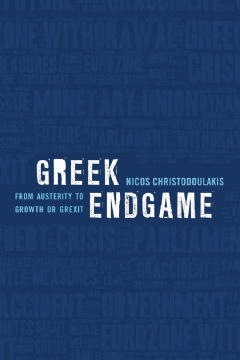
Additional Information
Book Details
Abstract
| The book explores in depth both the origins of the Greek debt crisis and the conditions under which the economy might be turned around from its current malaise. Greek debt turned explosive after the 2008 global crisis, through a combination of a fiscal spree and domestic policy complacency, but the unpreparedness and indecision of the European Union intensified the problem of liquidity and a massive bail-out agreement became inevitable. However, the stringencies of the adjustment program led to more recession and unemployment, while social tension and political polarization became entrenched. In 2015, a radical Left party, Syriza, ascended to power on a ticket to end austerity and renegotiate Greece’s debt agreements, but a long-lasting growth and reform agenda is still to be settled upon. This book lays out some key reforms that would allow Greece to return to growth and, at the same time, keep the Euro, an option that still remains a cornerstone for the country’s economic and geopolitical stability. |
Greece is pursuing a high-risk strategy in getting bail-outs from Germany and the rest of Europe. But the costs of a Grexit in terms of inflation and decline in living standards will be enormous. This brilliant analysis of Greece's dilemmas are wonderfully described by a former Minister of Finance of Greece, who is also a very sensible and knowledgeable macroeconomics professor. Let us hope that the politicians of Greece take heed and keep Greece afloat and in the Eurozone. The book will appeal to both academic and policy audiences and is a must-read for anyone interested in a voice of reason in these turbulent times.
Rick van der Ploeg, Professor of Economics, Oxford University
The author traces the origins of Greece’s current economic crisis, incorporating his own opinions on the failures of the Greek government and the European Union. He presents several reform policies that he believes will relieve the Greek economy, and allow the country to continue to use the euro.
Nicos Christodoulakis is Professor at the Athens University of Economics and Business and a Research Associate with the Hellenic Observatory at the LSE. He was Greek Minister of Finance in 2002-2003, and was acting Chairman of the Eurogroup.
This is an impressive account of how Greece entered the crisis and the obstacles it faces in exiting it. It shows expertise, skill in clear expression, and well-balanced judgement. It is neither narrow nor shallow: it contextualises the crisis, appropriately, in its European, international, and historical settings. In a period of fast-moving events, its account will endure. I recommend it to all.
Kevin Featherstone, Eleftherios Venizelos Professor of Contemporary Greek Studies and Professor of European Politics, London School of Economics and Political Science
This is a fascinating read. As a former Cabinet Minister and one of Greece’s most respected economists, Christodoulakis delivers an analysis that is both insightful and accessible. His account of the history and pre-history of Greece’s bailout drama, is an invaluable resource to all those interested in the reform of the Eurozone and the future of European integration.
Dimitris Papadimitriou, Professor of Politics and Director of the Manchester Jean Monnet Centre of Excellence (JMCE), University of Manchester
